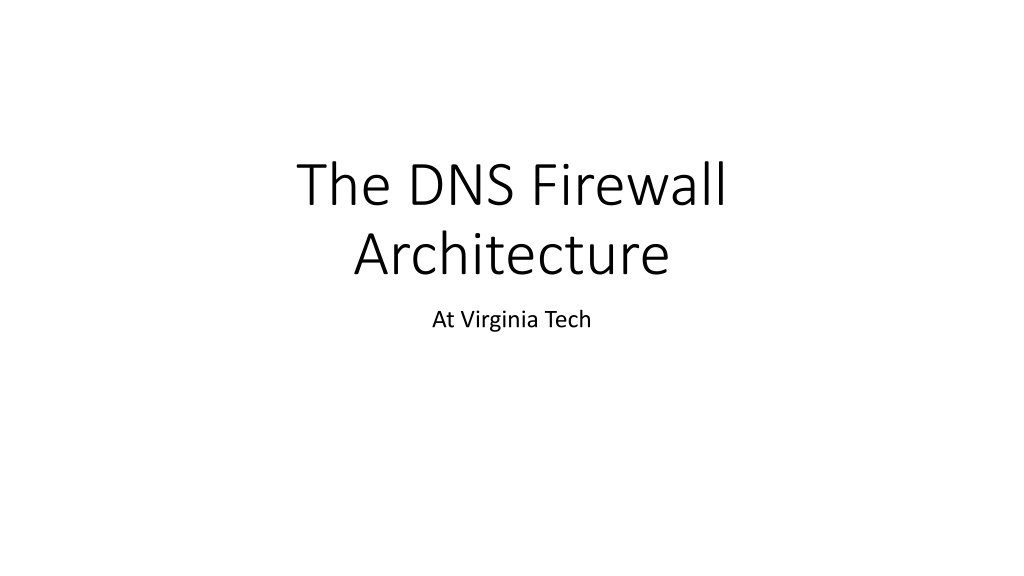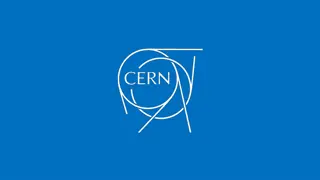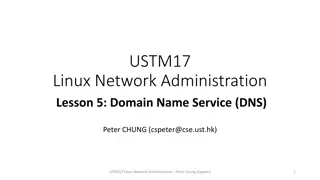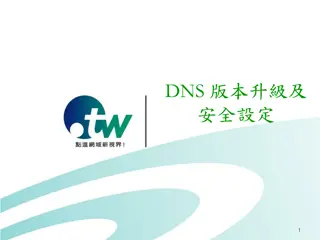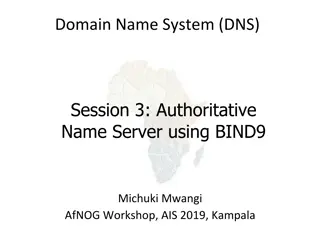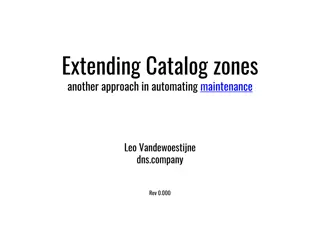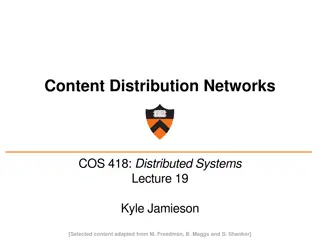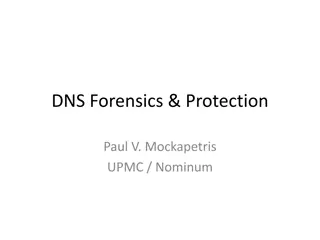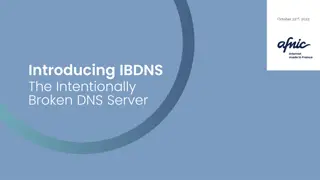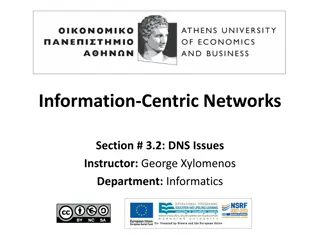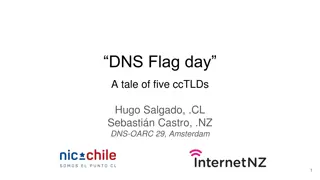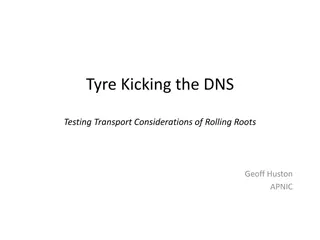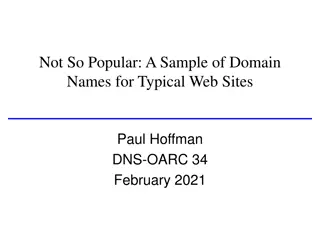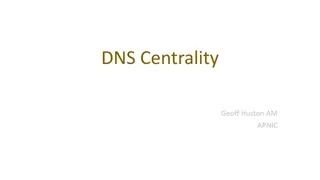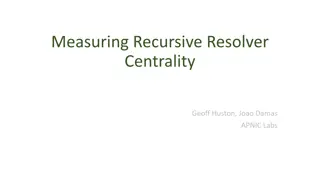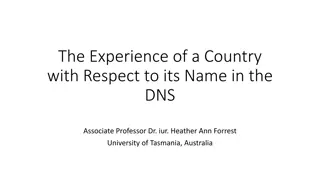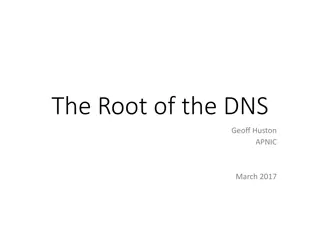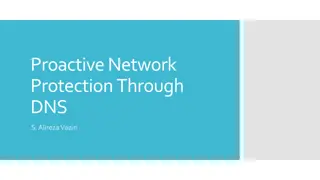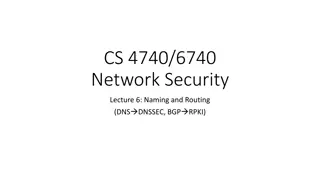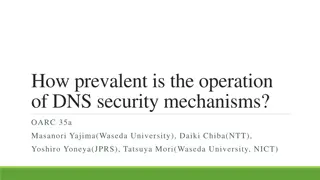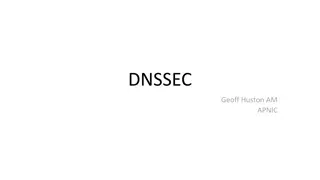Understanding DNS Firewall Architecture at Virginia Tech
Virginia Tech implements Response Policy Zone (RPZ) as a mechanism in the DNS system to protect clients from malicious domains. The RPZ allows recursive resolvers to customize responses for specific zones, enhancing security against malware callbacks. Working with campus partners, the RPZ database aims to age out domains, protect popular domains, and maintain a serverless SQLite DB engine for efficiency. Various feed sources provide data on automated malware domains, including REN-ISAC and ransomware trackers, contributing to a robust security infrastructure.
Download Presentation

Please find below an Image/Link to download the presentation.
The content on the website is provided AS IS for your information and personal use only. It may not be sold, licensed, or shared on other websites without obtaining consent from the author. Download presentation by click this link. If you encounter any issues during the download, it is possible that the publisher has removed the file from their server.
E N D
Presentation Transcript
The DNS Firewall Architecture At Virginia Tech
No Really What is a DNS Firewall? Also known as Response Policy Zone (RPZ). A mechanism in the DNS which allows recursive resolvers to customize responses (tell lies) for certain zones. First released in 2010 in BIND by Paul Vixie/ISC. It is an open and vendor-neutral standard. Goal is to protect clients from malicious domains. VT has been experimenting with RPZ since 2012.
Timetable No off-campus 2/25/19 ISB, RB14 DHCP hosts (COMPLETE) 3/4/19 Resnet (static, wireless) DHCP hosts 3/7/19 ITSO/NI&S deployment assessment 3/11-31/19 final rollout for rest of campus DHCP Optional users can configure their static hosts manually anytime
The Client View - Configuration VT Clients use the VT RPZ blocking enabled recursive resolvers. nyet.iso.vt.edu 198.82.247.39 nein.iso.vt.edu - 198.82.247.111 nope.iso.vt.edu 198.82.247.69 Currently only available from vt.edu address space. All VT DNS Recursive Resolvers transfer and log the RPZ. milo.cns.vt.edu - 198.82.247.98 jeru.cns.vt.edu - 198.82.247.66 yardbird.cns.vt.edu 198.82.247.34 Only nyet, nein and nope tell lies.
Client View Redirect
Working with campus partners NI&S maintains the DNS servers and process. ITSO maintains security feeds and master RPZ DNS server. Other campus depts (with own DNS) may: Forward queries to nyet, nein and nope. Transfer the BL zone from the ITSO.
The RPZ Database Goals Age out domains Protect Popular domains If Seven Days Have Passed Since Last Report Remove from DB Unless SOC Analyst Added the domain Serverless SQLite DB Engine Simple, Compact and Fast
The Feed Sources Automated Malware Domains REN-ISAC SES Ransomware Tracker Zeus Tracker Maybe NOD soon (working on this) Manual/API FireEye Appliances Bro We d like to learn about other high-quality sources. What do others do?
Lessons Learned It s worth the effort and cost Has prevented compromises Popular with campus community Spend more time upfront thinking How do we collect/visualize stats? How do we measure effectiveness? How do we mine the redirect data to find other issues? How do we integrate with other netsec assets? Be prepared to deal with detractors The intent is NOT to spy on DNS queries It s just another layer
Conclusion Open Forum/questions
